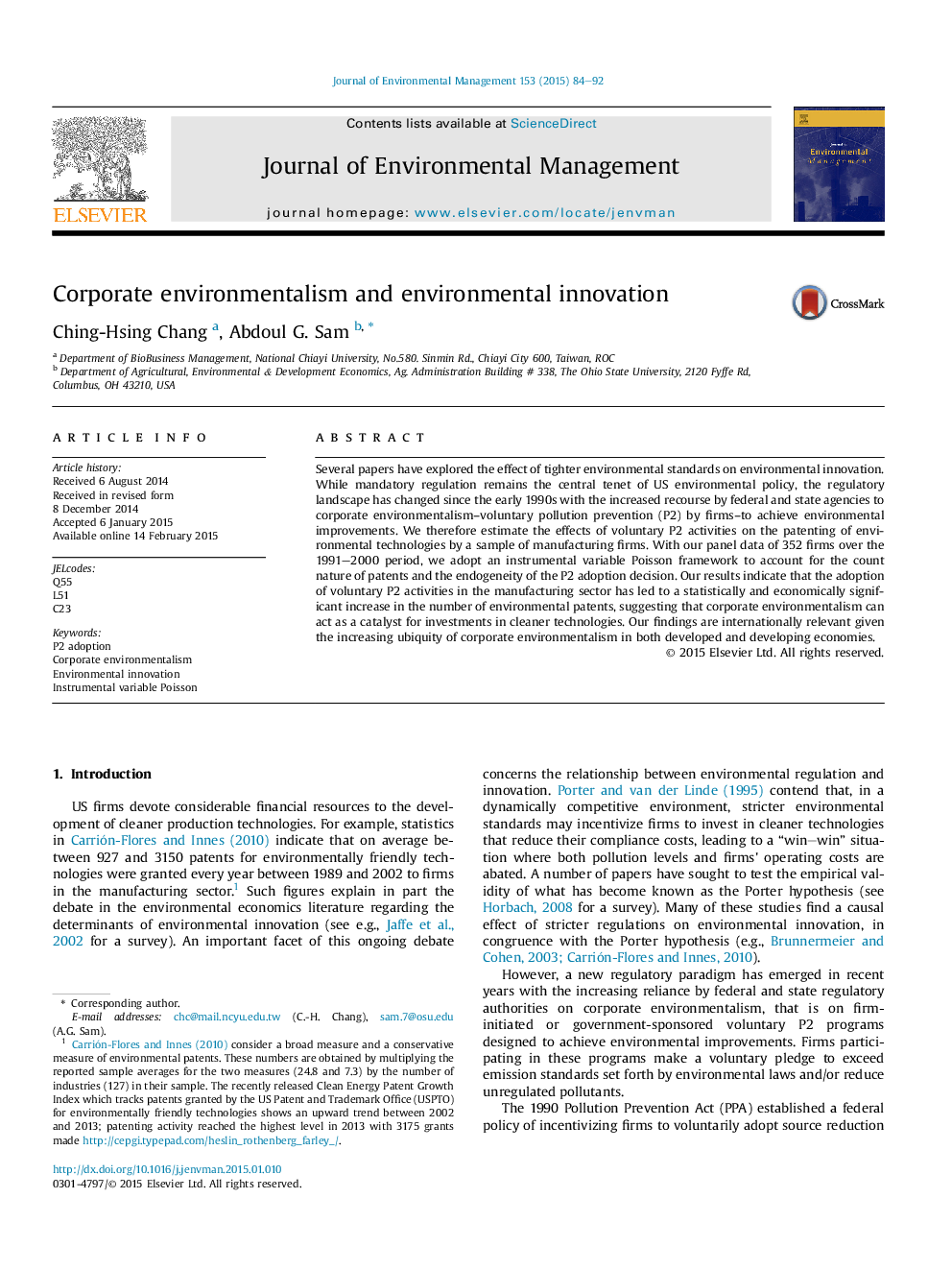| Article ID | Journal | Published Year | Pages | File Type |
|---|---|---|---|---|
| 1055629 | Journal of Environmental Management | 2015 | 9 Pages |
•We explore the impact of voluntary P2 adoption by firms on their environmental innovation.•Our analysis is implemented using a panel of manufacturing firms and IV Poisson regression.•We find a positive and significant impact of P2 adoption on environmental patent count.•We also find that tighter environmental standards boost environmental innovation.
Several papers have explored the effect of tighter environmental standards on environmental innovation. While mandatory regulation remains the central tenet of US environmental policy, the regulatory landscape has changed since the early 1990s with the increased recourse by federal and state agencies to corporate environmentalism--voluntary pollution prevention (P2) by firms--to achieve environmental improvements. We therefore estimate the effects of voluntary P2 activities on the patenting of environmental technologies by a sample of manufacturing firms. With our panel data of 352 firms over the 1991–2000 period, we adopt an instrumental variable Poisson framework to account for the count nature of patents and the endogeneity of the P2 adoption decision. Our results indicate that the adoption of voluntary P2 activities in the manufacturing sector has led to a statistically and economically significant increase in the number of environmental patents, suggesting that corporate environmentalism can act as a catalyst for investments in cleaner technologies. Our findings are internationally relevant given the increasing ubiquity of corporate environmentalism in both developed and developing economies.
